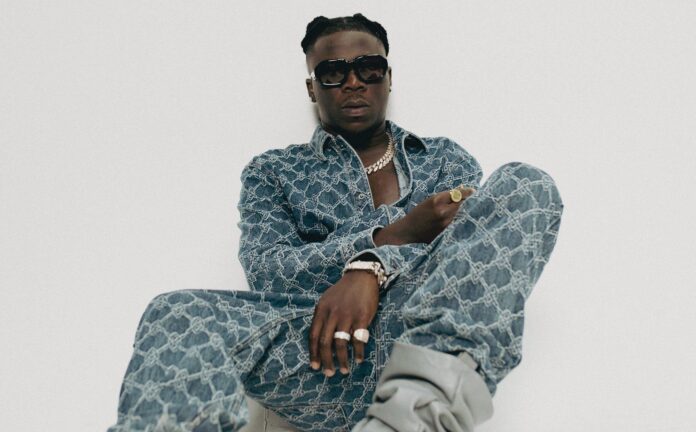Who Started Afro-Dancehall? Stonebwoy’s Claim Rekindles Genre Origins Debate
A longstanding conversation about the true origins of Afro-Dancehall has resurfaced, reigniting intense discussions among music enthusiasts, artists, and industry professionals.
At the forefront of the revived debate is Ghanaian Dancehall heavyweight Stonebwoy, who recently laid claim to being the originator of Afro-Dancehall. His assertion stirred conversations online and within the music industry, with many offering different takes on who deserves credit for birthing and popularising the genre.
Adding significant weight to Stonebwoy’s claim is Karl Kporgla Gidiglo, his former Artiste and Business Manager, who publicly backed the artist during an interview with Graphic Showbiz on Monday, July 7. Karl stated without hesitation that Stonebwoy was the first to coin and promote the term Afro-Dancehall, dating as far back as 2012.
“Let’s set the record straight,” Karl emphasized. “The term Afro-Dancehall was coined and championed by none other than Stonebwoy.”
He continued by acknowledging that Stonebwoy played a pioneering role in the creation and development of the genre, blending the essence of African musical traditions with the dynamic energy of Jamaican Dancehall. According to Karl, this innovation wasn’t widely accepted at the time.
“He took bold steps in creating a fusion of African sounds with Dancehall, even when others viewed it as a misstep. Critics, including notable names like Gyedu-Blay Ambolley, dismissed it as a watered-down version of Dancehall. But Stonebwoy didn’t allow the criticism to derail him—he remained committed to his vision. Today, that vision has grown into a vibrant and distinctive sound that has crossed borders.”
The controversy was reignited after Billboard Magazine referred to Ghanaian singer Moliy’s recent single, “Shake It To The Max”, as an Afro-Dancehall track. Following that description, Stonebwoy took to social media to claim that he had spearheaded the Afro-Dancehall movement, setting off waves of debate online and in the Ghanaian music space.
In response to Stonebwoy’s claims, veteran musician Samini—who has long been credited with nurturing Stonebwoy during his formative years—stepped in to clarify his stance. While Samini acknowledged his own contributions to the evolution of Ghanaian Dancehall, he stopped short of claiming the Afro-Dancehall label, instead stating that what is now known by that name is a natural offshoot of the African Dancehall style he helped popularise.
Despite Samini’s remarks, Karl Kporgla maintains that Stonebwoy deserves clear recognition for his role—not just as a participant in the genre’s development but as the main force behind its branding and popular appeal.
“It’s unfortunate that we didn’t take the legal steps to trademark the term ‘Afro-Dancehall’ back in 2012 when the movement was taking shape,” Karl noted. “But the fact remains that Stonebwoy laid the groundwork. The influence of his work and the sound he pioneered is impossible to ignore.”
Karl, who now manages Dancehall act Wakayna, argued that while Samini’s contribution to Ghana’s Dancehall culture is significant, it is Stonebwoy who has consistently pushed the Afro-Dancehall sound beyond Ghana’s borders. From performing on international stages to collaborating with global stars, Stonebwoy has helped place the genre on the world map.
“Samini undoubtedly had a hand in Stonebwoy’s early growth as an artist. That mentorship played a key role in shaping his identity. However, it’s important to distinguish between influence and innovation. Stonebwoy took what he learned and built something new—he branded it, he refined it, and he introduced it to the world as Afro-Dancehall.”
Karl’s comments come at a time when genres like Afrobeats, Amapiano, and Afro-fusion are dominating global playlists, and conversations around African music innovation are gaining more attention. For him, giving Stonebwoy due credit is part of a broader need for African artists to document, protect, and claim ownership of their creative innovations.
“There are so many cases in music history where genres were created by African or Caribbean artists, but credit was later taken by others because there was no documentation or protection,” he said. “We can’t allow that to happen here. Afro-Dancehall has a clear origin, and Stonebwoy’s role in that story should not be downplayed.”
The conversation continues to evolve, with music fans, commentators, and stakeholders sharing their views on social media and radio platforms. While some believe Afro-Dancehall emerged from a collaborative evolution of sounds within the Ghanaian and broader African music landscape, others firmly side with Stonebwoy as the face of the genre’s rise.
One thing is certain: Afro-Dancehall is now a recognized sound, and the conversation around its origins highlights a growing awareness of the importance of cultural ownership in African music. Whether or not the industry agrees on a single founder, the discourse signals a deeper appreciation for those who have helped shape modern African music.
As the genre continues to expand, with new artists exploring its fusion of African melodies and Dancehall rhythms, the pioneers of Afro-Dancehall will remain central to the story. And for Karl Kporgla Gidiglo, that story must begin with Stonebwoy.



